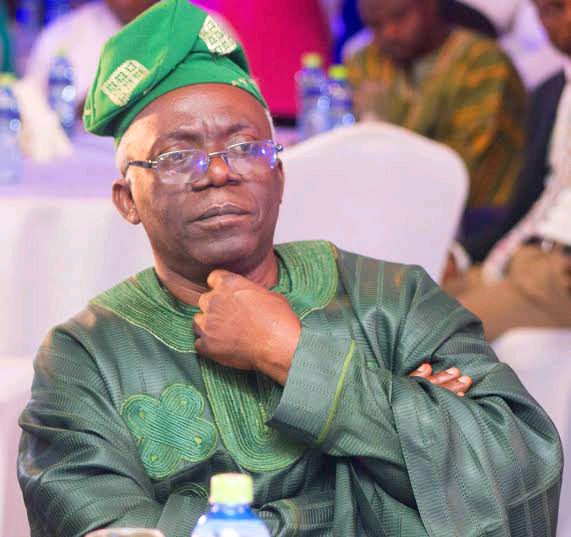-
Human rights lawyer, Femi Falana, calls for an out-of-court resolution to Nnamdi Kanu’s prolonged detention.
-
Says the IPOB leader’s case is political and should be treated as such, not judicially.
-
Faults government’s double standard, citing negotiations with bandits.
Prominent human rights lawyer and Senior Advocate of Nigeria (SAN), Mr. Femi Falana, has urged the Federal Government to adopt a political approach to resolve the lingering detention of the Indigenous People of Biafra (IPOB) leader, Mazi Nnamdi Kanu, rather than continuing legal proceedings.
Speaking during a courtesy visit to Governor Alex Otti in Umuahia, the Abia State capital, Falana described the matter as “purely political,” insisting that prolonged courtroom battles would not achieve peace or justice.
ATTENTION: Click “HERE” to join our WhatsApp group and receive News updates directly on your WhatsApp!
Falana stated: “I cannot comment on pending proceedings. You understand me? Like you said, the case was in court today, but I believe that it is a matter that should be sorted out outside the courtroom,” Falana stated
“For me, it’s a political case. And if you have a situation where some governments are negotiating with bandits or other criminal elements, there can be no basis for not having that matter resolved politically.”
‘Negotiation, Not Litigation’
Falana argued that the Federal Government’s willingness to engage in dialogue with armed groups should be extended to political agitators like Kanu, noting that selective justice weakens national unity and fuels mistrust.
According to him, it is inconsistent for the government to treat one set of offenders with leniency while applying strict legal measures to others pursuing political causes.
READ ALSO: Falana Blames IMF, World Bank for Forcing Nigeria’s Fuel Subsidy Removal
Commends Governor Otti’s Performance
The senior lawyer also commended Governor Alex Otti for his visible achievements in infrastructure, healthcare, and education across Abia State.
He noted that within two years in office, the Otti administration had demonstrated what he described as “uncommon leadership and people-oriented governance.”
Falana said he was in the state to represent a client in court but decided to pay a courtesy visit to the governor, having followed Abia’s political progress since 1999.
“I’ve seen signs of good governance more than ever before in the state,” Falana remarked, applauding Otti for transforming the socio-economic landscape.

